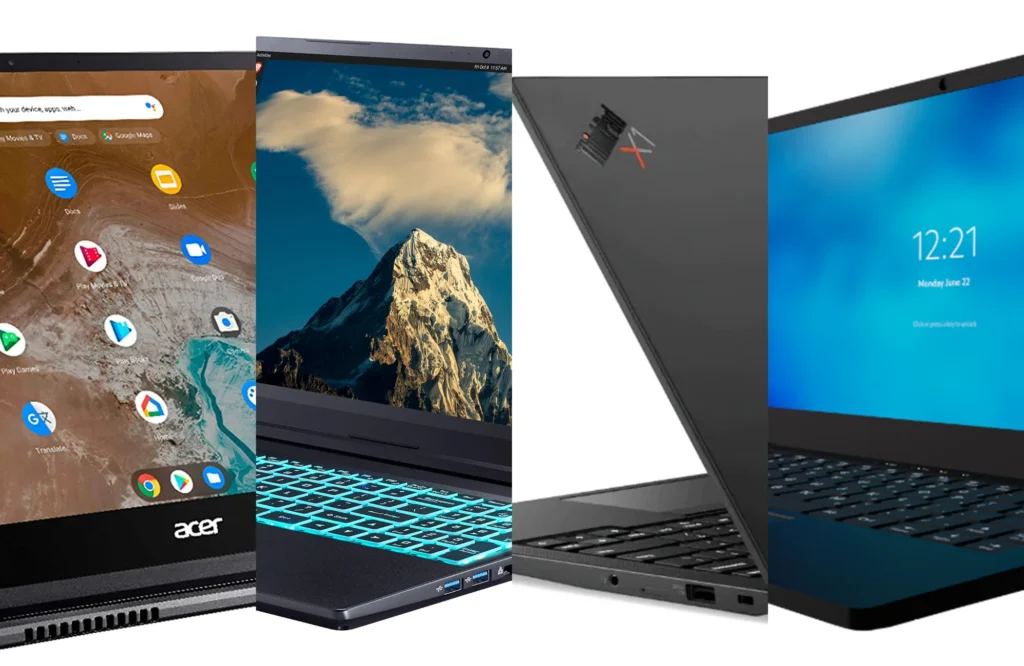
In the ever-expanding universe of operating systems, Linux has established itself as a beacon of versatility, offering a plethora of distributions tailored for various needs and preferences. When it comes to netbooks – those compact, portable devices designed for on-the-go computing – Linux shines brightly, providing lightweight, efficient, and powerful alternatives to resource-hungry counterparts like Windows and macOS.
Netbooks, with their modest hardware specifications, demand operating systems that are nimble yet feature-rich, capable of delivering a seamless user experience without overwhelming the limited resources at their disposal. Fortunately, Linux excels in this arena, boasting distributions optimized for low-end hardware without compromising functionality or usability.
Let’s delve into some of the great Linux operating systems ideally suited for netbooks:
- Ubuntu Netbook Remix (UNR): Ubuntu, one of the most popular Linux distributions, offers a specialized variant known as Ubuntu Netbook Remix. Tailored specifically for netbooks, UNR features a sleek interface optimized for smaller screens and limited resources. Its efficient use of system resources coupled with the Ubuntu ecosystem’s robustness makes it an excellent choice for netbook users seeking reliability and performance.
- Lubuntu: Lubuntu stands out as a lightweight flavor of Ubuntu, employing the LXQt desktop environment to deliver a responsive user experience on low-spec hardware. With a minimalistic design and streamlined performance, Lubuntu conserves system resources while providing essential tools and applications for everyday computing tasks. Its emphasis on speed and efficiency makes it an ideal match for netbooks seeking a balance between functionality and performance.
- Peppermint OS: Peppermint OS combines the power of Ubuntu’s base with a lightweight LXDE desktop environment, offering a cloud-centric approach to computing. Designed to leverage web applications and cloud services, Peppermint OS excels in providing a fast and efficient computing environment for netbooks with limited storage and processing capabilities. Its seamless integration of web-based tools ensures that users can maximize productivity without straining system resources.
- Linux Mint with Xfce or MATE Desktop: Linux Mint, renowned for its user-friendly interface and stability, offers editions featuring the Xfce or MATE desktop environments, both of which are lightweight and resource-efficient. These editions provide a familiar computing environment akin to traditional desktops while optimizing performance for netbook hardware. Linux Mint’s extensive software repository and community support further enhance its appeal, making it an excellent choice for netbook users seeking a reliable and user-friendly Linux experience.
- Manjaro Linux with LXQt or Xfce: Manjaro Linux, known for its rolling release model and user-centric approach, offers editions featuring the LXQt or Xfce desktop environments, both of which prioritize performance and customization. With its Arch Linux base, Manjaro provides cutting-edge software updates and a vast selection of packages, ensuring that netbook users have access to the latest features and enhancements. Its lightweight nature and flexible design make it a compelling choice for users seeking a highly customizable Linux experience tailored to their netbook’s specifications.
In conclusion, the realm of Linux operating systems offers a treasure trove of options for netbook users, each catering to specific preferences and requirements. Whether prioritizing lightweight performance, user-friendly interface, or extensive customization, there’s a Linux distribution perfectly suited to complement the capabilities of any netbook. With Linux, netbook users can unlock the full potential of their devices, enjoying a seamless and efficient computing experience without compromise.